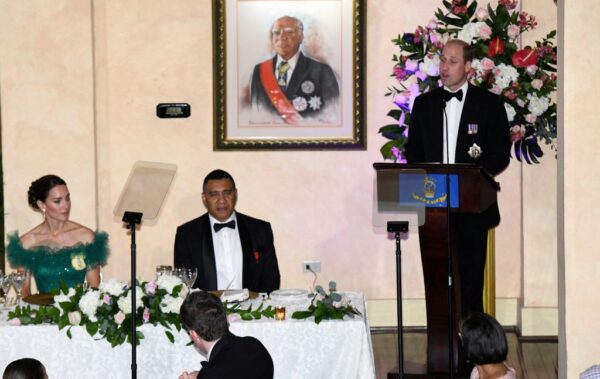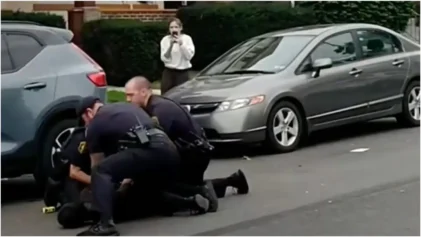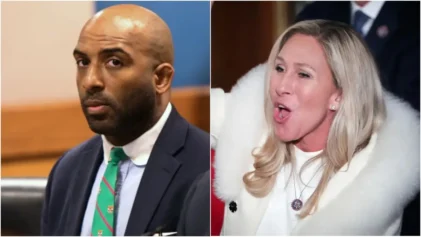The death of Queen Elizabeth II has revived calls for the removal of the British monarch as the head of the state of former colonies in the Caribbean and reparations for the descendants of millions of Africans who were trafficked to the West Indians to work sugarcane fields for free.
Elizabeth II’s son has assumed the throne and role of monarch, making him the titular head of the U.K. and 14 Commonwealth countries, eight of which are in the Caribbean. A decision by Barbados’ government to convert to a republic and remove the monarch as the head of state, spurred talks in other Caribbean nations, followed by calls to redress slavery and colonization.
King Charles III’s accession to the throne has given some reparationists’ hope. They are looking to the new monarch to do what his mother failed to do during her 70 years on the throne — acknowledge and apologize for the crown’s role in slavery and its aftereffects and offer people of African descent compensation.
“We expect that Charles, in his new role as King will heed the call for reparatory justice in the region, noting that justice is what is required in these times and reparatory justice is what is required now,” said The Bahamas National Reparations Committee following the announcement of the queen’s death on Sept. 8.
During the November ceremony marking Barbados’ transition away from the crown. Charles, then Prince of Wales, called slavery an “appalling atrocity” that stains British history. A local protest for reparations was quietly shut down, reports show. He used the same language three years before in Ghana, Africa.
In June, Charles said in his opening address at a Commonwealth summit that he could not describe the “depth of my personal sorrow at the personal suffering of so many as I continue to deepen my own understanding of slavery’s enduring impact.” It was time to have “a conversation” about slavery, he added.
Jamaican economist and academic leader Rosalea Hamilton said she expects the new king to live up to his words at the summit.
“It suggests that he’s learning, and I think that’s a good thing because we’re all learning because the history was hidden from us,” Hamilton told Atlanta Black Star. “As we all learn, it influences how we behave and how we act. The expectation is that as he learns more, he would better understand the positions we take and that he will do the right thing.”
Hamilton said an apology would be a good start, followed by a plan for reparatory justice. The economist is part of a group of 100 activists, members of the diaspora and other professionals, including one member of Parliament, who wrote a letter to Charles’ elder son and his wife when they visited Jamaica on a Caribbean tour in March. Attached was a list of 60 reasons why the British needed to pay reparations and make a formal apology.
During the tour celebrating Elizabeth II’s 70th year on the throne, the royal family also drew protests in Antigua & Barbuda and Belize. A trip to Grenada had to be canceled over the uproar.

Jamaica and other Caribbean countries under the monarch have formed reparations committees or councils to develop plans to redress for slavery. The Caribbean Community (CARICOM) has developed a ten-point plan that includes repatriation, psychological rehabilitation and debt cancellation.
Dorbrene O’Marde, chairperson of Antigua and Barbuda’s Reparations commission, said the collective is “tired” and “insulted by the approach of telling us things that we already knew” “that slavery was horrible” and “genocide was committed.” His organization wrote two letters to the monarchy during Elizabeth II’s reign.
O’Marde said a reparations plan should target the development of distressed areas in the British Caribbean.
“I think certainly that we ask Britain to reassess its role in the intentional underdevelopment of Africa and this Caribbean, asking Britain to reassess its role in the genocide, in the plunder, in the violence that it exerted on African people on the continent and here in the Caribbean,” O’Marde told Democracy Now. “And that in really assessing this role, that it must understand clearly that the morality of the situation, the ethics of the situation, calls for repair.”
Still, some believe that the king is a figurehead and has little power over the ancient establishment that the crown truly is.
Howard A. McDonald of Up Jamaica said the Caribbean has been asking for reparations for years without any progress. McDonald, who leads the movement aimed at changing the political system on the third largest Caribbean island, said a reparations process should start with parting from the crown.
“First, we can’t keep doing the same thing and expecting different results,” McDonald told Atlanta Black Star. “We don’t need to ask for reparations. We need to take it.”
In the first week of Charles’ kingship, Antigua & Barbuda and Bahamas prime ministers announced plans for a voter referendum on removing the monarch as the head of state. Belize, Grenada and St. Kitts and Nevis have also previously expressed their interest in cutting ties.
A recent poll shows more than 50 percent of Jamaicans favor the dissolution. Still, Hamilton said there had been little progress from the government since Prime Minister Andrew Holness told the Duke of Cambridge the country would be “moving on” from the monarchy in late March. Her group, The Advocates Network, has been holding forums to “build awareness” of what the change could mean.
McDonald said he envisions a republic where Jamaica would tax other members of the Commonwealth and large corporations with stakes in countries that benefited from slavery. The money should be used to create a fund to benefit “people of African descent who were stolen from their countries,” he said.
“They didn’t ask us to work. They forced us to work, so we have to take it. We don’t need to ask them for it,” McDonald said. “If we keep asking, we’re not going get anywhere.”


